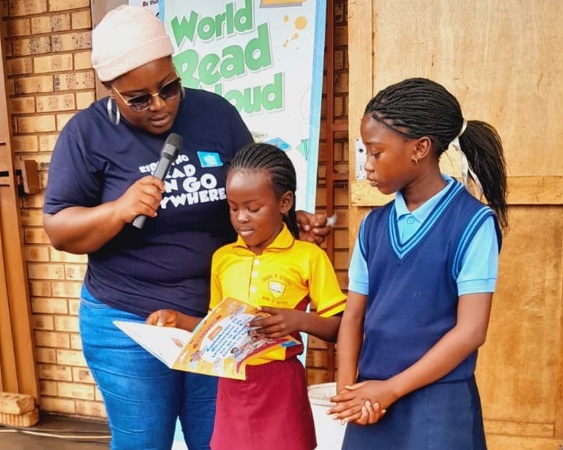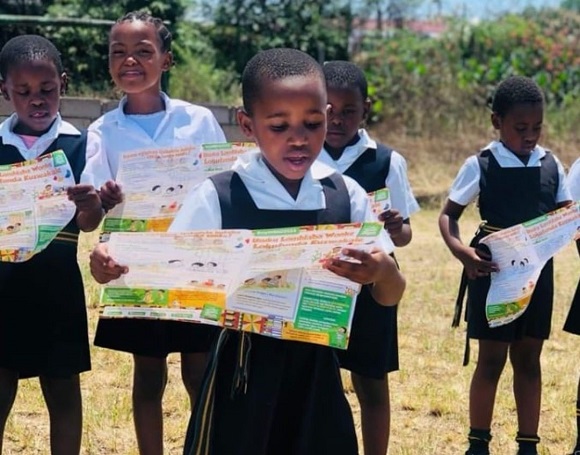Cape Town, Friday, 19 May 2023 – The recently released Progress in International Reading Literacy Study (PIRLS) 2021 results revealed that 81% of 1,127 877 grade 4 learners assessed in 2021 cannot read for meaning. The country’s response mechanisms and solutions to this crisis however remains unchanged.
The Director of Nal’ibali, Nqabakazi Gina said, “We cannot rely on fragmented interventions and linear solutions to address a social problem. It is time we learn from countries that have rapidly transformed their reading culture and who are currently above the international benchmark, on how they manage to get everyone on board and instil a vibrant reading culture nationwide”.
A common thread that can be drawn from countries who are doing better than us is that ‘reading is adopted as a social practice’, it is practised daily and driven by all social actors. This is the same advocacy message that Senior Lecturer at the University of Cape Town, Dr Xolisa Guzula and Professor in Language Education, University of the Western Cape, Professor Carole Bloch have been proclaiming that ‘reading is a socio-cultural practice’ and it is embedded in our social practices, beliefs and norms. It demands for ALL hands on deck.

Our response to this crisis should surpass the response and strategies adopted during the COVID pandemic. Every actor has a critical role to play in nurturing reading as a daily culture i.e. parents, caregivers, teachers, teacher assistants, child and youth care workers, community health workers, social development engines, youth programmes, businesses, policy-makers, public and private leadership, churches, community based organisations and all other interested stakeholders.
Gearing up to expand on various interventions, Nal’ibali is keen to accelerate reading development among South African children but is mindful of the fact that early childhood literacy development requires a multifaceted approach, and the following interventions are key:
Every parent should play their role in the reading ecosystem by creating reading opportunities within their homes, that means read stories with children (read aloud), schedule regular daily reading and storytelling sessions. Increase opportunities for children to engage with text, words, be familiar with more words and develop ability to build meaning on words received every day.

Every programme that works with children (i.e., aftercare programmes, early learning programmes, health programmes, sports and recreation, etc.) should incorporate reading as core in their practice. Access to printed and digital reading materials (parents, schools and community programmes) should make conscious efforts to download every week digital stories or storybooks, find free printed storybooks in their locality (or contact Nal’ibali, Wordworks, Bookdash, the Bookery, SAIDE, Room to Read, Mikhulu Trust) for books, digital stories, advice and support.
Children should be afforded reading opportunities at least 15 minutes a day at home, school & community settings. Nal’ibali also encourages schools and educators to embed reading for enjoyment into their curriculum and highlights the importance of the home environment, in particular the role that parents and caregivers can play to create a culture of reading.
To ensure success, Nal’ibali’s interventions are implemented through the support of public and private sector partners who are committed at making a positive change into the literacy ecosystem, enabling all South African children become passionate and lifelong readers. As the landscape for early childhood literacy development is constantly shifting, Nal’ibali continues to innovate and evolve its programs to ensure that the ultimate beneficiaries, the children, are given access to and enjoy reading and adopt it as part of their regular activities.
